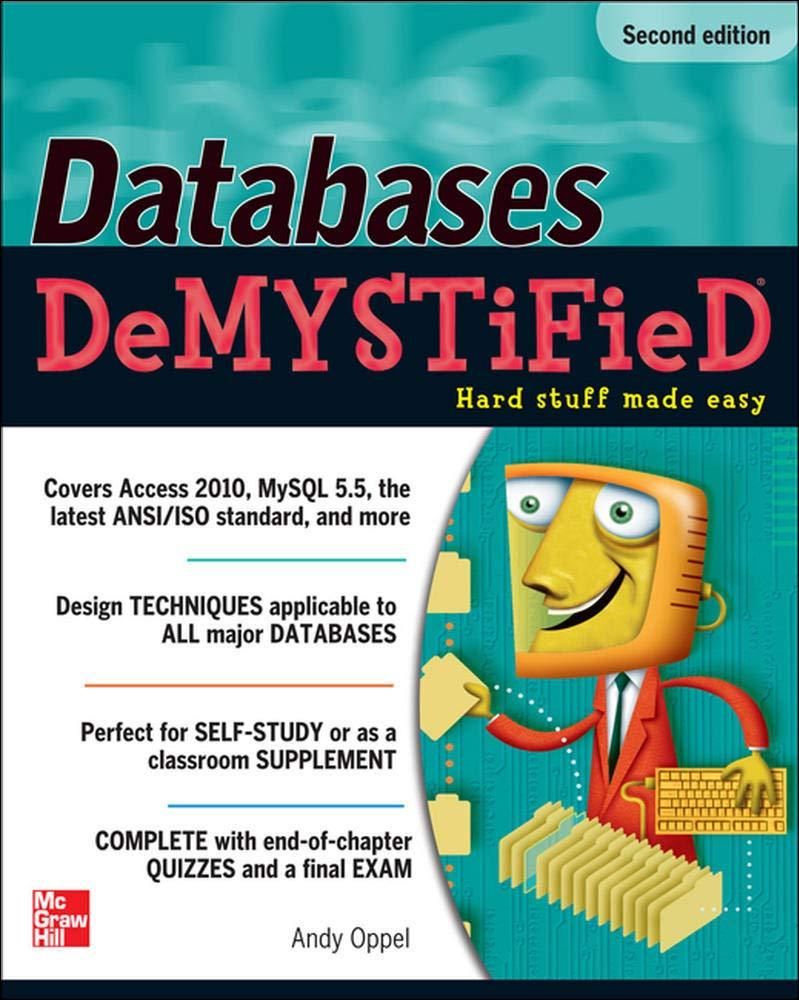Question
Need help with this part of my java assignment, comments appreciated. This class extends class Expression and represents PrefixExpressions Interface for class PrefixExpression public PrefixExpression(
Need help with this part of my java assignment, comments appreciated.
This class extends class Expression and represents PrefixExpressions
Interface for class PrefixExpression
public PrefixExpression( String str) : This constructor receives a String containing the expression text. It will invoke the constructor for class Expression, passing in the expression text.
public boolean isLegal(): This method returns true if the first token in the tokenList is an operator, AND the last two tokens are operands, AND the number of operands in the expression is equal to the number of operators plus 1.
| PrefixExpression |
| NO ADDITIONAL DATA MEMBERS |
| + PrefixExpression( in expr: String): constructor + isLegal(): boolean + evaluate(): double |
public double evaluate(): This method uses a queue of Strings to evaluate the prefix expression.
o Ensure the expression is legal, if not Stop and throw an exception, using class ArithmeticException
o Enqueue all of the tokens in the tokenList into the queue o if the # of tokens in the queue >= 3,
? Dequeue the 1st 3 values. Into 3 String variables: ie: a, b, & c ? else Stop and throw an exception, using class
ArithmeticException o While not done
? If A is not an operator, and B & C are not operands, then we do not have a subexpression. So;
Enqueue A back onto the queue, and swap values
A =B
B=C
Dequeue a new value into C
Repeat the previous steps until A is an operator and B & C operands
? Once is we have a subexpression
Convert the operands into values of type double
Call the method evaluateSubexpression
Enqueue the result back onto the queue.
o If the number of elements in the queue equals 1, we are done.
o Else, dequeued 3 new values into a , b, & c and continue processing.
o When done (one value remaining on the queue) dequeue and return the result of the expression.
Expression Class:
package project2;
import java.util.ArrayList;
public abstract class Expression {
// data member
protected String expression;
protected ArrayList
// constructor
public Expression(String expression){
this.expression = expression;
tokens = new ArrayList
String[] tokenList = expression.split(" "); // convert the string to array of tokens
// insert the tokens in the list
for(int i=0;i tokens.add(tokenList[i]); } // method to return the expression public String getExpression() { return expression; } // method to return the tokens public ArrayList return tokens; } // method to check if the token is operand or not(i.e can be converted to double or not) protected static boolean isOperand(String token) { try { double val = Double.valueOf(token); return true; // token can be converted to double value }catch(NumberFormatException e) { return false; // token cannot be converted to double value } } // method to check if the token is operator or not protected static boolean isOperator(String token) { if(token.equals("+") || token.equals("-")|| token.equals("*") || token.equals("/") || token.equals("%")) return true; return false; } // method to return the value of the token(operand value) protected static double getOperandValue(String token) throws NumberFormatException { return(Double.valueOf(token)); } // method to evaluate the subexpression and return the result protected static double evaluateSubExpression(double operand1, String operator, double operand2) { double result; switch(operator) { case "+" : result = operand1 + operand2; break; case "-" : result = operand1 - operand2; break; case "*" : result = operand1 * operand2; break; case "/" : result = operand1 / operand2; break; case "%" : result = operand1 % operand2; break; default : result = -1; } return result; } // abstract methods to be implemented in subclass public abstract boolean isLegal(); // See my comment on page 3 of instructions. public abstract double evaluate(); } Prefix: package project2; public class PrefixExpression extends Expression { public PrefixExpression(String expression) { // Remember the super constructor } @Override public boolean isLegal() { /* * See my comment on page 3 of instructions. * You can decide to implement isLegal() in Expression class. * In which case, you can get rid of this method here. */ } @Override public double evaluate() { } }
Step by Step Solution
There are 3 Steps involved in it
Step: 1

Get Instant Access to Expert-Tailored Solutions
See step-by-step solutions with expert insights and AI powered tools for academic success
Step: 2

Step: 3

Ace Your Homework with AI
Get the answers you need in no time with our AI-driven, step-by-step assistance
Get Started


